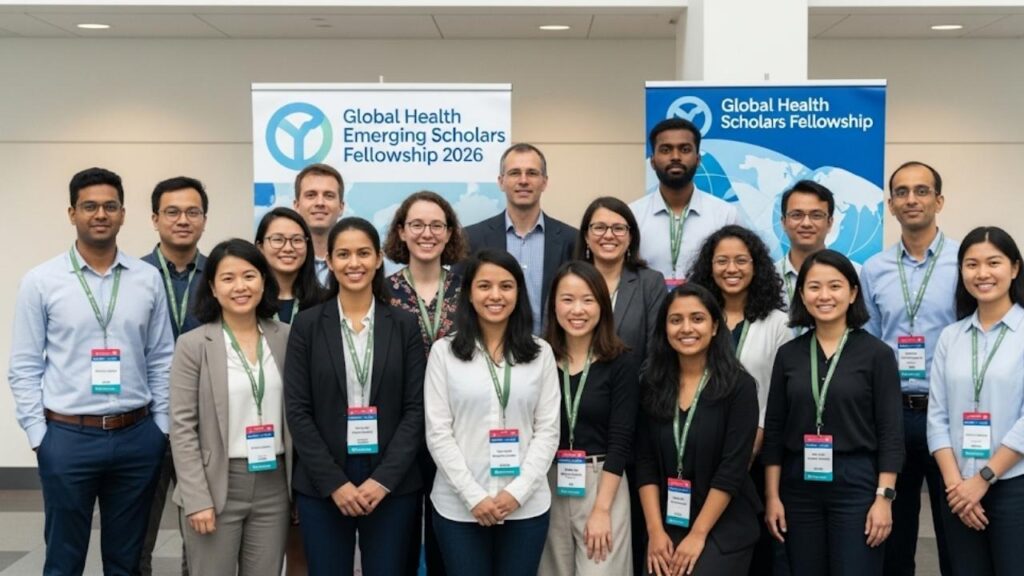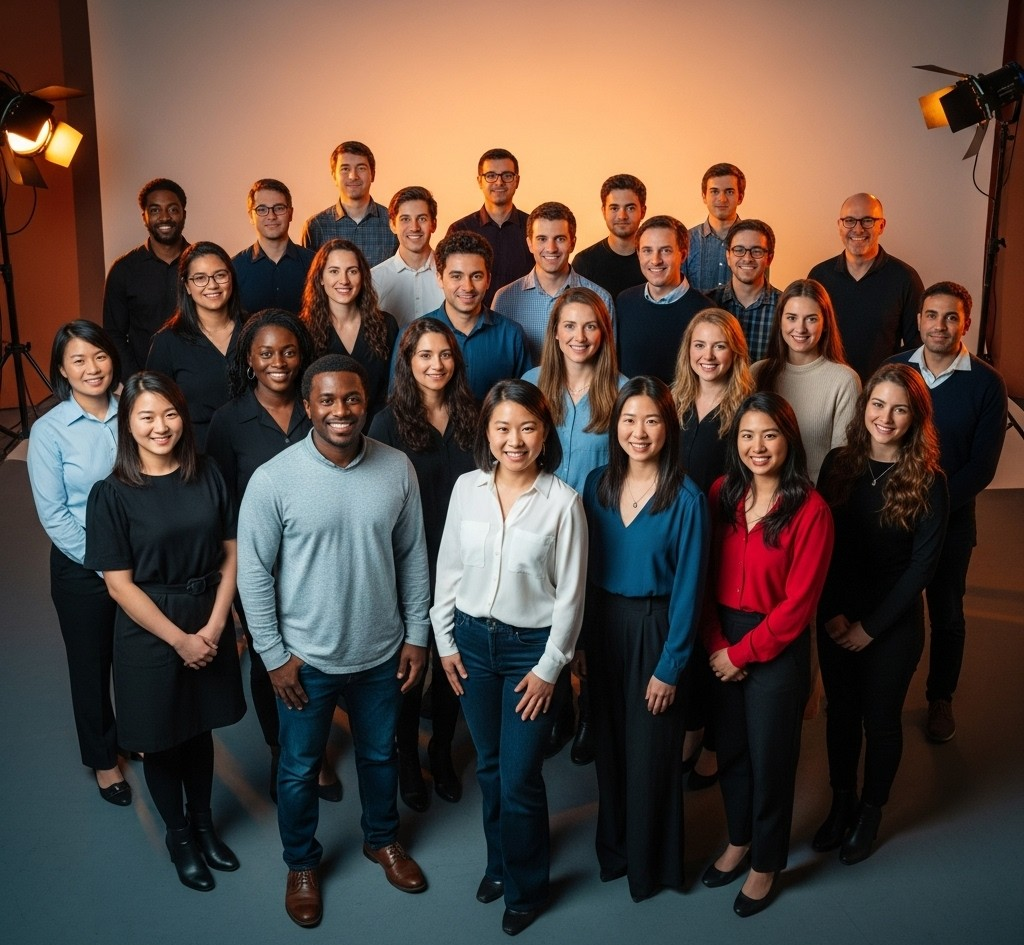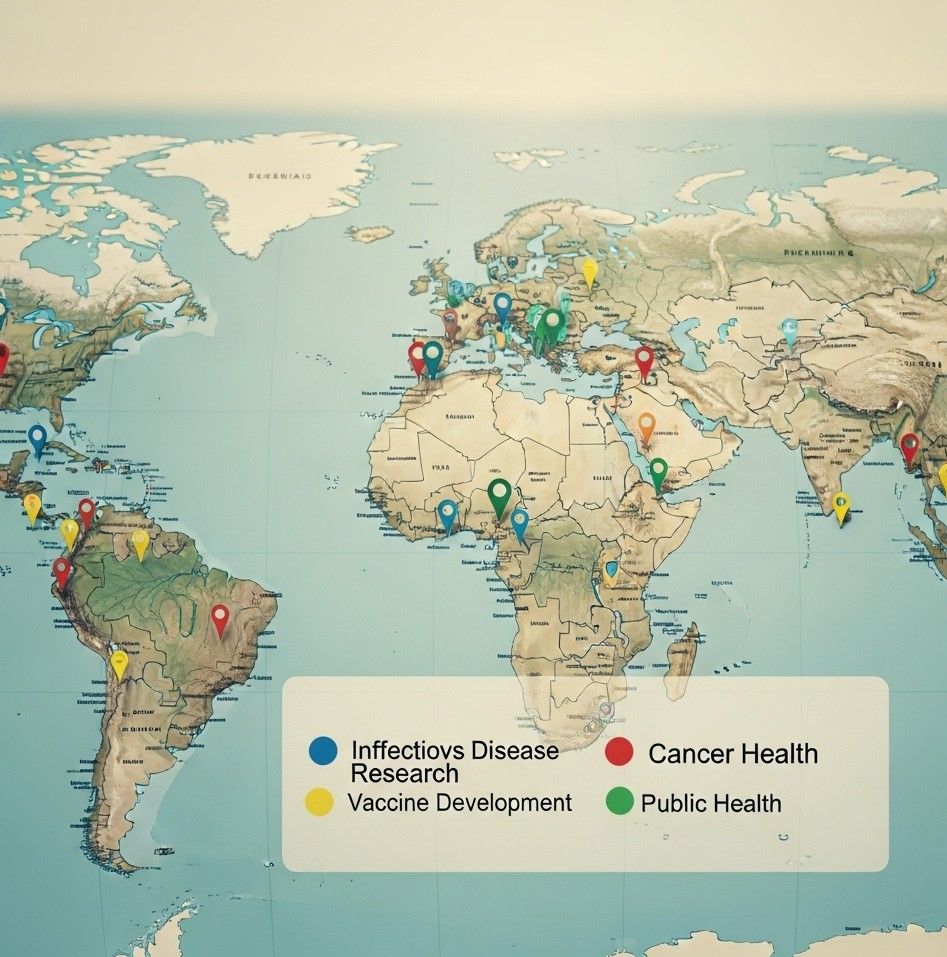Are you an aspiring global health leader with a passion for addressing health inequities worldwide? Do you envision yourself contributing to cutting-edge research in diverse international settings? If so, the Global Health Emerging Scholars Fellowship 2026 could be the transformative opportunity you’ve been searching for. As someone who has spent years guiding promising scholars, I’ve seen firsthand how programs like this can truly launch careers and make a tangible difference. This fellowship isn’t just about gaining experience; it’s about becoming part of a global network dedicated to improving population health.

The application window for foreign applicants for the Global Health Emerging Scholars (GHES) Fellowship 2026 is now open, presenting a unique chance for postdoctoral researchers from Low- and Middle-Income Countries (LMICs) to engage in mentored global health research. This comprehensive guide will walk you through the specifics of the program, including eligibility, the application process, and key strategies to help you craft a compelling application.
What is the Global Health Emerging Scholars Fellowship?
The Global Health Emerging Scholars (GHES) Fellowship is a prestigious 12-month, NIH-supported program designed to provide mentored research training in global health. It’s a collaborative effort, hosted by a consortium of leading U.S. academic institutions including Yale University, Stanford University, the University of Arizona, and UC Berkeley. The fellowship aims to cultivate the next generation of global health researchers by immersing them in high-impact, collaborative projects focused on critical health challenges in resource-limited settings.
Who Can Apply? Eligibility for Foreign Applicants
The GHES Fellowship welcomes applications from a diverse pool of talented individuals. For foreign applicants, the primary focus is on postdoctoral fellows from affiliated institutions in LMICs. Here’s a breakdown of the key eligibility criteria you’ll need to meet:
- Citizenship: You must be a citizen of a Low-Middle-Income Country (LMIC) as defined by the World Bank. The program maintains collaborations with research training sites in numerous LMICs.
- Doctoral Degree: You must have received a doctoral degree within the past five years (typically meaning from 2021 onwards, for the 2026 fellowship year), or expect to complete it by May 2026. Acceptable doctoral degrees include, but are not limited to, PhD, DrPH, MBBS, MMed, and other comparable research or health professional degrees. It’s crucial that your terminal degree is completed before the fellowship start date in July 2026.
- Institutional Affiliation: A vital requirement for LMIC postdoctoral applicants is to be affiliated with one of the GHES partner LMIC institutions. This affiliation is paramount, as you’ll need to secure the endorsement of both a GHES U.S. mentor (from one of the consortium universities) and a GHES LMIC mentor (from an affiliated institution in an LMIC) in your application.
- Research Focus: Applicants should propose research that addresses critical health issues in low-resource settings. While specific priority themes may be highlighted (e.g., impact of urbanization and social inequities, healthcare delivery innovation, noncommunicable and chronic diseases), the program generally encourages research that seeks innovative solutions to improving health services and promoting the effective management of scarce resources.
- Time Commitment: If accepted, fellows are required to dedicate 100% of their time to the 12-month fellowship. This means full-time work on GHES activities, and no other employment during this period. LMIC fellows are typically expected to spend 1-3 months of their fellowship year at their GHES U.S. institution for collaborative work and training.

Finding Your Mentors: A Crucial Step
One of the most distinguishing features of the GHES Fellowship is its strong emphasis on mentorship. As an applicant, you are expected to co-develop your research proposal with your designated U.S. and LMIC mentors. This highlights the program’s commitment to fostering international collaborations.
In my experience advising students, one common hurdle is identifying and connecting with potential mentors early in the process. It’s not just about having a name; it’s about establishing a genuine professional relationship and ensuring their research interests align with yours. The official GHES website (often hosted by Yale University, Stanford, or UC Berkeley as part of the consortium) provides detailed information on available research training sites and lists of affiliated mentors
Navigating the Application Process
The application for the Global Health Emerging Scholars Fellowship 2026 is submitted online, typically through a portal managed by one of the consortium universities. The application deadline is generally October 1, 2025, at 5:00 p.m. Eastern Time. It’s crucial to begin preparing well in advance to gather all necessary documents and craft a compelling submission.
Here’s a general overview of the application requirements:
- Online Application Form: This comprehensive form will gather your personal and contact information, professional background, and details about your proposed fellowship.
- Research Proposal: This is arguably the most critical component of your application. Your proposal must be well-structured, scientifically sound, and clearly articulate your research question, methodology, expected outcomes, and how it aligns with global health priorities in resource-limited settings. It’s essential to adhere to GHES guidelines and formatting requirements.
- Letters of Recommendation: You will typically need a minimum of two letters of recommendation, with a maximum of three. One letter must be from your primary GHES U.S. mentor (from one of the four consortium universities), and another from your primary GHES LMIC mentor. These letters should be on institutional letterhead, signed, and include the mentor’s contact information. They should address your potential as a global health researcher, your aptitude for research, and your commitment to a career in global health.
- NIH Biosketch: You will need to submit an NIH Biosketch for yourself (in fellowship format) and for both your U.S. and LMIC mentors (in non-fellowship format). This document summarizes your qualifications, experience, and publications.
- Transcripts: For pre-doctoral applicants (though primarily for US students, still good to be aware), unofficial transcripts may be required.
- Personal Statements: These essays are your opportunity to tell your story, highlighting your motivation for pursuing global health, your career goals, and how the GHES Fellowship will help you achieve them.
- Tentative Budget: You will likely need to submit a tentative budget for your proposed study. While research funding is provided by the fellowship (typically up to $10,000 for LMIC postdocs), demonstrating thoughtful financial planning is important.

Crafting a Standout Application: Key Strategies
Beyond meeting the basic requirements, a truly exceptional application will convey your passion, expertise, and potential impact. Here are some strategies to consider:
- Clarity and Conciseness: While the topic is complex, strive for clear and concise language. Avoid jargon where possible, or explain it thoroughly. Remember, the reviewers are looking for someone who can communicate their ideas effectively.
- Show, Don’t Just Tell: Instead of simply stating you are passionate about global health, provide concrete examples from your past experiences that demonstrate this passion. Have you volunteered in a health clinic, participated in a community health initiative, or published on a relevant topic? Highlight these.
- Align with GHES Mission: Ensure your research proposal and personal statements clearly align with the GHES program’s objective of addressing health inequities and improving population health. Demonstrate how your work will contribute to these goals.
- Highlight Collaborative Potential: Emphasize your ability to work effectively in interdisciplinary and cross-cultural teams. The GHES fellowship is built on collaboration, so showcasing your interpersonal skills and experience in collaborative environments is a plus.
- Proofread Meticulously: A flawless application demonstrates attention to detail and professionalism. Have multiple people review your application for grammatical errors, typos, and clarity.
- Reach Out Early: Do not wait until the last minute to contact potential mentors or gather your documents. Starting early allows for thoughtful preparation and gives you time to address any unforeseen challenges.

The RIFS Fellow Programme 2026: Your Gateway to Global Sustainability Leadership
FAQ
Q1: Can I apply for the Global Health Emerging Scholars Fellowship if I have only a Master’s degree?
A1: No, the Global Health Emerging Scholars Fellowship for both U.S. and LMIC postdoctoral applicants requires a doctoral or health professional degree (e.g., PhD, DrPH, MD, DDS, DVM, MBBS, MMed). A Master’s degree alone does not meet the eligibility criteria for postdoctoral positions.
Q2: How important is it to have a research proposal before contacting potential mentors?
A2: While you don’t need a fully finalized proposal, it’s highly beneficial to have a clear idea of your research interests and a tentative proposal outline. This demonstrates your seriousness and allows mentors to assess the alignment with their work. Many applicants co-develop their proposals with their chosen mentors, so a strong starting point is key.
Q3: What is the success rate for foreign applicants to the Global Health Emerging Scholars Fellowship?
A3: The GHES Fellowship is highly competitive. While specific success rates for foreign applicants are not publicly disclosed, focusing on a strong research proposal, securing engaged mentors, and clearly demonstrating your commitment to a global health career will significantly improve your chances.
Q4: Can I apply for the GHES Fellowship if my country is not listed among the collaborating LMICs?
A4: LMIC postdoctoral applicants must be citizens of one of the collaborating LMICs and affiliated with a GHES partner LMIC institution. You should verify the updated list of collaborating countries and institutions on the official GHES program website (e.g., Yale School of Medicine or Stanford University global health sites) to confirm eligibility.






